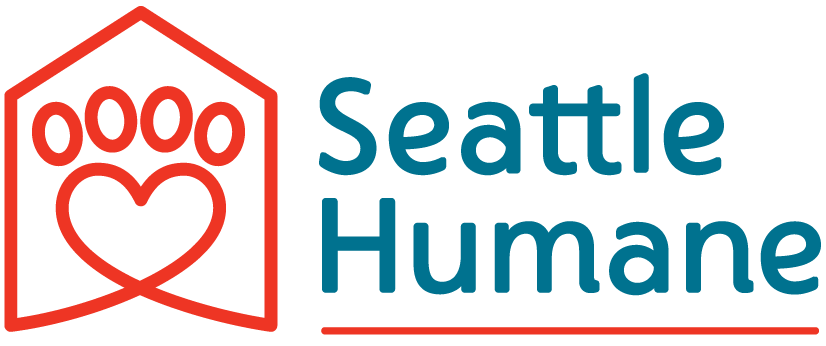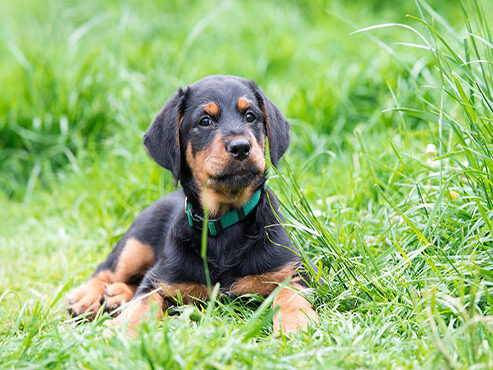Although feeding time is important, it’s also vital to include petting, talking and playing, in order to help your puppy build good “people-skills.” Well-socialized mothers are more likely to have well-socialized puppies. Puppies “feed” off of their mothers’ calm or fearful attitude toward people.
Puppies are usually weaned at six or seven weeks, but are still learning important skills as their mother gradually leaves them more and more. Ideally, puppies should stay with their littermates (or other role-model dogs) for at least 12 weeks.
Puppies separated from their littermates too early often don’t develop appropriate “social skills,” such as learning how to send and receive signals, what an “inhibited bite” means,
how far to go in play wrestling and so forth. Play is important to help puppies increase their physical coordination, social skills and learning limits. Interacting with their mother and littermates helps them learn “how to be a dog” and is also a way to explore ranking (“who’s in charge”).
Skills not acquired during the first eight weeks may be lost forever. While these stages are important and fairly consistent, a dog’s mind remains receptive to new experiences and lessons well beyond puppy-hood. Most dogs are still puppies, in mind and body, through the first two years.
The following chart provides general guidelines for the stages of development:
0 – 2 weeks = Neonatal
- Most influenced by their mother.
- Touch and taste present at birth
2 – 4 weeks = Transitional
- Most influenced by their mother and littermates.
- Eyes open, teeth erupt, hearing and smell developing.
- Beginning to stand, walk a little, wag, bark.
- By four or five weeks, sight is well-developed.
3 – 12 weeks = Socialization
- During this period, puppies need opportunities to meet other dogs and people.
- By four to six weeks they’re most influenced by their littermates and are learning about being a dog.
- From four to 12 weeks they’re most influenced by their littermates and people. They’re also learning toplay, including social skills, inhibited bite, social structure/ranking and physical coordination.
- By three to five weeks they’re becoming aware of their surroundings, companions (dogs and people) and relationships, including play.
- By five to seven weeks they’re developing curiosity and exploring new experiences. They need positive “people” experiences during this time.
- By seven to nine weeks they’re refining they’re physical skills/coordination (including housetraining) and full use of senses.
- By eight to ten weeks they experience real fear — when puppies can be alarmed by normal objects and experiences and need positive training.
- By nine to 12 weeks they’re refining reactions, social skills (appropriate interactions) with littermates and are exploring the environment, spaces and objects. Beginning to focus on people. This is a good time to begin training.
3 – 6 months = Ranking
- Most influenced by “littermates” (playmates now include those of other species).
- Beginning to see and use ranking (dominant and submissive) within the pack, including humans.
- Teething (and associated chewing).
- At four months they experience another fear stage. By three to five weeks they’re becoming aware of theirsurroundings, companions (dogs and people) and relationships, including play.
6 – 18 months = Adolescence
- Most influenced by human and dog “pack” members.
- At seven to nine months they go through a second chewing phase – part of exploring territory.
- Heightened exploration of dominance, including challenging humans.
- If not spayed or neutered, beginnings of sexual behavior. Most influenced by “littermates” (playmates nowinclude those of other species).

